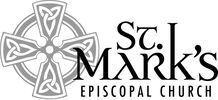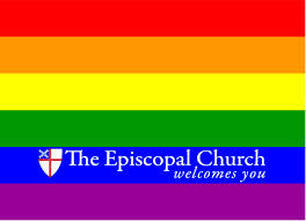I'm pleased to write with some very happy news about the music ministry at St. Mark's.
Since we announced Choir Director Curtis Storm’s departure for graduate school, a group of us have been having conversations in various configurations about how best to move forward with finding a new person to direct the choir. That group included myself, as rector, June Hahl (as both vestry and choir member), Scott Wallace (as Sr. Warden) and Linda Mack (as choir member, as a professional musician who could help us consider fairly the "package" and expectations of whomever we hired, and as someone who knows both St. Mark’s music history and the Durango “music scene” very well),
I was delighted to learn that Helen Jauregui was interested in discussing with us the possibility of adding the role of choir director to her current ministry as organist. As you can imagine, the vestry and I wanted to move as quickly as was prudent, but also with due diligence and care. After hearing back from various conversations, the vestry unanimously authorized me at its June meeting to convene a group to have further conversation with Helen, and, if everyone agreed, to move ahead with hiring her.
Last week, Helen met with me, Scott, June, Linda, and Paul Duggan (as an additional choir member). I’m delighted to tell you that after a rich and thorough conversation, all parties agreed that we would be very blessed to have Helen serve as our next choir director! Since she will be taking on responsibility for all aspects of the music ministry here at St. Mark’s, we will change her title to Director of Music Ministry, and she will begin her new duties effective August 1, 1017.
I am personally excited about this for many reasons. Among them are her long years of experience as a choir director and church musician, her obvious musical talent, her deep care for the people and mission of St. Mark’s, and for the seamless continuity she will provide as we move into a new season of music ministry in the parish. But perhaps more than any of that (important as those things are), I am especially grateful for the fact that Helen understands music not simply as her profession, but also very clearly as her vocation, as a genuine calling from God. As your rector, that’s extremely significant to me. It means that I have in Helen not simply a staff member, but also a colleague in ministry who shares a pastoral perspective about all that we do here, and who understands music as an essential part of the faithful worship of God.
For all of that, and for all of you, I am deeply grateful! I trust that you will join me in welcoming Helen into this new role, and in praying both for her and for all of us as we gather each week to lift our hearts and voices to God!
Thank you, Helen, for your faithfulness and commitment!
Peace to all of you,
Debbie Shew+
Rector


 RSS Feed
RSS Feed

